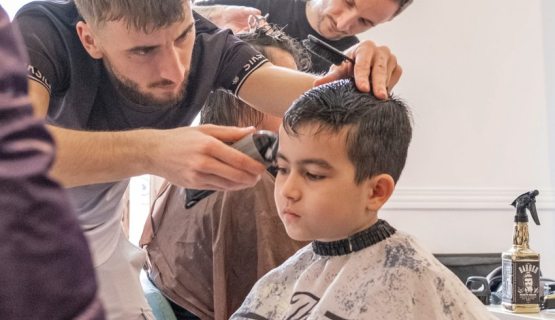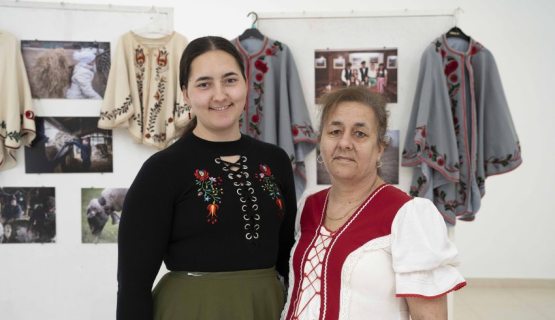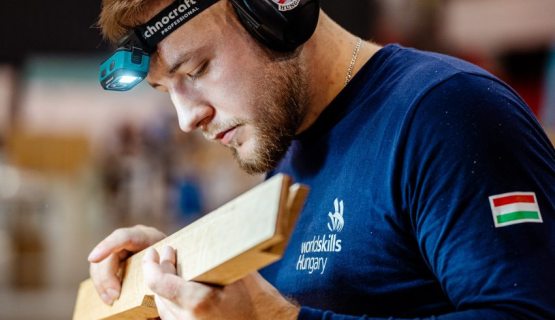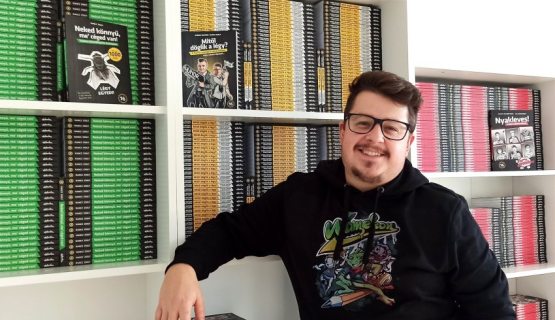“How come we haven't noticed this before?” – was asked from Katalin Karikó, who in turn discovered it and received the Nobel Prize
The question was asked at a party by a scientist who had earlier repeatedly criticized Katalin Karikó, the Hungarian biochemist who has just received the Nobel Prize in Physiology or Medicine. The jovial scientist actually intended the question as a kind of apology and amends, and Katalin took it as such. It was not the first time in her life that she had experienced finding a new way in a world that seemed unchangeable.

Dr Katalin Karikó received the call from Stockholm at 4 a.m. on 2 October 2023 to become one of this year's Nobel laureates. She has spent 24 years researching the mysterious messenger RNA, hoping to find a way to communicate with the body. To use the message-carrying molecule to deliver a biological blueprint to the body that could help with cellular healing.
It took five years for her to publish the results because the scientific press failed to see the enormous value of the discovery. The message we want to get to our cells reaches its destination today. The technique developed by Katalin Karikó and Drew Weissmann could in the future also play a role in the treatment of cancer, stroke, or hypertension.
After all, most healing actually depends on our ability to communicate in the right way... Are we sending the right message? Do we have the right messenger? Can we get the message - physical or spiritual - to where it is needed? Is the message inspiring enough to trigger action?
Katalin Karikó's struggles in her private life and in her scientific research show similarities as if she had always seen the things she experienced in the world on a smaller scale, under her microscope.
The girl from Kisújszállás has come a long way to get her message to the right place, and this message could and will be able to shape the destiny of mankind.
"One day, a guy walked into the lab and said they had brought lipofectin for a beta test, it would bring in nucleic acid, and I immediately ran up and said that's what I needed," Katalin said of the moment when her research had a breakthrough. But to get this unexpected gift, she needed to be in the lab with all her knowledge at the right moment.
Katalin Karikó was born in Kisújszállás, her father was a butcher, and her mother an accountant. She went to the local primary school and high school, then became a student at the University of Szeged. During one summer holiday, she locked herself up with her language book for two months, and that's how she learned English in Kisújszállás, never taking a language course, never even crossing the city limits.
Her university lecturer often quoted János Selye's credo, who was then emerging on the international scene: focus on what you can change and don't spend time on what you don't have control over. Let us not try to change others, but simply do our job. 35 years later, Katalin heard these words echoed at a Selye event. "Progress can only be achieved with ideas that are vastly different from those currently accepted," said the chemist and stress researcher János (Hans) Selye, who was nominated for the Nobel Prize 17 times during his lifetime.
Katalin Karikó brought János Selye's worldview with her from her alma mater and incorporated it into her personality.
She started her scientific work at the Biological Research Centre of Szeged in the 1980s, but after a few years of research, she was dismissed due to downsizing and laboratory technical limitations. The family packed up and Katalin got a job at Temple University in Pennsylvania when their daughter Zsuzsanna was two and a half. Katalin wanted to run home after a week because the atmosphere at the university was overwhelming and she missed her friends and relatives.
"I was forced to rely on my talent," she recalls. In American scientific life, jobs ran from grant to grant, and work often went into the night because you had to prove your research direction with successful experiments. How could the mysterious messenger RNA be induced from the outside to instruct the cell to create useful molecules, build medicines to heal the body, or simulate an infection to which the body could produce antibodies?
The Hospital of the University of Pennsylvania has tried to apply the method in the treatment of stroke patients. The basic idea was that it would be worthwhile to dilate blood vessels in the brain area with impaired blood supply by RNA instruction. The body uses a specific compound to do this, but this molecule transforms too quickly in the blood to be delivered to the right place by injection. However, the method did not work initially, with the body treating the partisan RNA as the enemy, identifying the messenger of healing as the enemy.
The secret was that we had to learn about the body's friend-enemy recognition system, the appearance of RNA molecules in our own cells, or as the Katalins called it, "body painting".
It turned out that our cells carry our body's dress code, and access is only possible in the dress code!
Once they found this out, they managed to smuggle their own message into the cells, repainted as friendly. The mRNA vaccines when entering the body use this idea to induce the cells to produce a protective substance.
"I am not a hero, the doctors and nurses who went to the patients are the heroes, I was just having fun in the laboratory," Katalin said with a smile. For decades she was sure of her truth, even though she was subjected to a lot of scientific hostility, lost her job several times, and crossed the ocean to do what she believed in. More than once, she created a new way of life for her family in a foreign environment. When she finally succeeded in getting nucleic acid into the cell, she celebrated with chocolate hazelnuts. When troubles got too much for her, she drew strength from a song by the Hungarian singer, Zorán entitled Diamonds and Gold.
Sources of quotes:
https://medicalonline.hu/kitekinto/cikk/szerdan_jelenik_meg_kariko_katalin_oneletrajza
https://mta.hu/tudomany_hirei/kariko-katalin-nobel-dijas-111642
https://www.youtube.com/watch?v=iJisRE5BwXo&t=1952s






